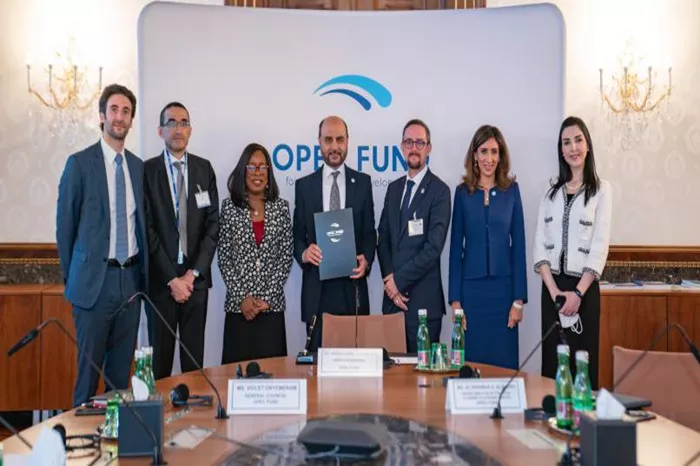The OPEC Fund for International Development and the World Bank Group have signed a Memorandum of Understanding (MoU) and a Co-financing Framework Agreement (CFA) aimed at enhancing cooperation on pressing global development challenges and improving project implementation efficiencies.
The agreements were finalized during the World Bank/IMF Annual Meetings in Washington, D.C., by OPEC Fund President Abdulhamid Alkhalifa and World Bank Group President Ajay Banga.
These documents reaffirm the institutions’ commitment to collaboratively address critical issues related to the energy-food-water nexus, promote climate-friendly investments, and enhance regional cooperation and connectivity efficiently and cost-effectively.
OPEC Fund President Alkhalifa remarked, “Today marks a milestone in our decades-long partnership with the World Bank Group. Our renewed partnership underscores the OPEC Fund’s commitment to tackling the most pressing development challenges of our time. From energy access and climate resilience to food security and regional connectivity, these are areas where collaboration can truly amplify our impact. By accelerating project development and implementation at the country level and leveraging our collective strengths, we are committed to delivering sustainable development for all.”
World Bank Group President Banga emphasized the importance of partnership, stating, “We need all shoulders at the wheel to realize our vision of a world free of poverty on a livable planet. Partnership plays a critical role in turning our ambitions into action, and this new chapter in our cooperation with the OPEC Fund will allow us to do that.”
The agreements lay the groundwork for increased collaboration in areas such as climate-friendly energy technologies, food security, and regional infrastructure projects. The CFA will facilitate closer coordination during project appraisal, co-financing, and implementation, streamlining preparatory work to accelerate delivery. Additionally, both institutions will work together to support private sector engagement in renewable energy, climate adaptation, and job creation, particularly for women and youth.
The partnership between these two multilateral development banks has thrived for nearly five decades, with both organizations collaborating on 232 projects valued at $37.8 billion across multiple sectors and regions since 1977.
Recently, the OPEC Fund announced nearly $1.2 billion in new funding since June 2024, dedicated to supporting infrastructure, agriculture, and climate resilience projects in 11 countries. These funding approvals were highlighted during the 189th Governing Board meeting, further reinforcing the OPEC Fund’s commitment to transformative development initiatives.
The latest projects focus on critical sectors in various countries, including Armenia, Benin, Colombia, and Côte d’Ivoire. In Colombia, a $150 million loan will support the implementation of a decentralization and biodiversity support program, benefiting 16.5 million people. Meanwhile, in Benin, $26 million will be invested to enhance food security through horticulture initiatives, supporting 16,000 households and nearly 100,000 smallholder farmers.
Related topic:

